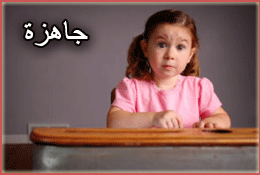-
Ahlan Kurumi ,
I think it is a challenge to talk to 4 kids at the same time in any language :) , but I will try to keep it simple. If you are talking to one (male) child, and the imperative ends with a vowel (Irmi-throw, imshi-walk, farshi-brush...) then you just drop the vowel from the end, however if your talking to a female then you don't, here are the examples in Arabic:
Male Female
إرمي إرمِ
إمشي إمشِ
فرشي فرشِ
If you are talking to 4 of them at the same time, then just say (farshoo-فرشوا, irmoo- إرموا, imshoo - إمشوا ...) regardless to the gender.
Finally, yes, (6ayyeb) is (Ok) or (good).
All the best with the children, bless them :) -
Just to make sure the examples are clear:
Male --- Female
إرمي ---- إرمِ
إمشي ---- إمشِ
فرشي ---- فرشِ
-
Shukran Ehab for the clarification.This is really helpful.^.^
Now I'll go back to listening to this and other podcasts for deeper understanding.
I need to get used to inflection ,which will take me more time..I will try saying it outloud to my kids. ;) Even though they don't understand!XDD -
Thanks for the lesson. I love the phrase, 'Roo7 mashsha6 sha3rak bisura3a'. :P:D btw.. Google translates 'tiqhar' as invincible/unconquerable/indomitable. Is that the literal translation, or is Google wrong?
-
Its not in Fusha? why?
-
@ tijo , yes strange that Google gave that translation, it is just not correct.
@ sarahhh , this lesson is in common colloquial that any Arab would understand, not the type of colloquial that is specific to any country. And of course the reason is because a child talking to his mother would be normally speaking in colloquial and not fus-ha. Hope you see the reaosn -
@Ehab
In regard to 'tiqhar' mentioned by tijo:
Isn't the root QHR the same as in "al Qahira"
which means "the victorious" or "the undefeated" as was said in earlier lessons ?
-
If Ta2a7'arnaa is "We are late", then how should we say "we were late"? I thought we could use "na+verb" (e.g nashrub) to make the past/perfect form of the verb for WE ______. So if Ta2a7'ar is To Be Late, then isn't there a word like naTa2a7'ar?
-
Sorry.....I meant...
I thought we could use "na+verb" (e.g nashrub) to make the past/perfect form of the verb for WE ______.
-
Adding (na) before a past tense verb makes the verb present tense, and possibly present continuous depending on the context
The verb (kataba - he wrote) becomes (naktub - we write/we are writing), and your example (nashrab) is (we drink/are drining).
So (ta2a7'ar) when we add (na) to it we make it present tense/continuous in the plural form of course (nata2a7'ar - we are getting late).
To say (we were something) you need to use (kunnaa) for (we were) then add after it (ism almaf3ool) to describe your situation. Ism almaf3ool for (being late) is (muta2a7'ir - singular)/(muta2a7'ireen - plural), so simply (we were late) in Arabic is (kunnaa muta2a7'ireen).
Hope that helps. -
It would be funny if someone said these things to their wife.
-
Very useful lesson when you have kids, especially the last phrase!
Just wondering why the -naa bit is at the end in ta2a7'naa, and not at the beginning. In the "Shaami breakfast" lesson, you used "maa tata2a7'ar", where the particle indicating who is doing the action is at the beginning... -
gwenmartineau, in Arabic, the past tense is followed by a pronoun that indicates to who is doing the action. In present tense verbs the particle that indicates who does the action comes at the beginning.
So in Arabic when we say (we are late) we actually say - literally - (we were late تأخرنا) i.e. in the past tense. However in the example (maa tata2a7'ar - don't be late - ما تتأخر) the present tense was used, which is always the case in using (maa ....) to order someone not to do something, so in colloquial you say (don't throw ما ترمي) again (throw) is present tense.
I hope you are getting the point. -
I hadn't understood you used the past tense. It's quite clear now, thanks Ehab!
Beginner - Getting a child ready
| July 27th, 2012 | 15 comments |
Getting children ready to go out can sometimes be a bothersome task, for often children complain that they want things done for them. Today you will learn some useful vocabulary that are commonly used when getting children ready to go out.
 MP3 Download MP3 Download
|
 PDF Transcript PDF Transcript
|
 Audio Transcript Audio Transcript
 Exercise Exercise
 PLC PLC
 Dialogue Dialogue
|
| Free | Basic | Premium |
|---|
Join the Discussion

Like this on facebook!

Random Word
محل |
|

Advertisement




I easily picked up some words like,'ta2a7'arnaa'and 'bisur3ar'and 'Marrah teqhar!'.
Fortunately(?),I can practice these expressions in daily real situations,but I would like to know more about another words.
1:
As for 'your teeth',and 'your hair',this mother is talking to only one child.So when I want to talk to 4 kids at one time,kayf taqool aljumlah instead? :)
2: fashi=farshi(male)
farshy(female)
what is the rule for imperative?
3: 6ayyeb=okay=good=tamam
is this understanding appropriate?
I would like answers for these when it is convinient for our teachers.